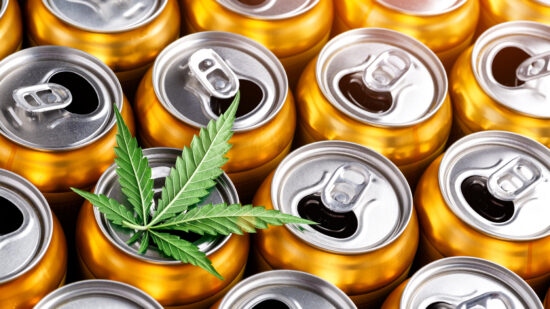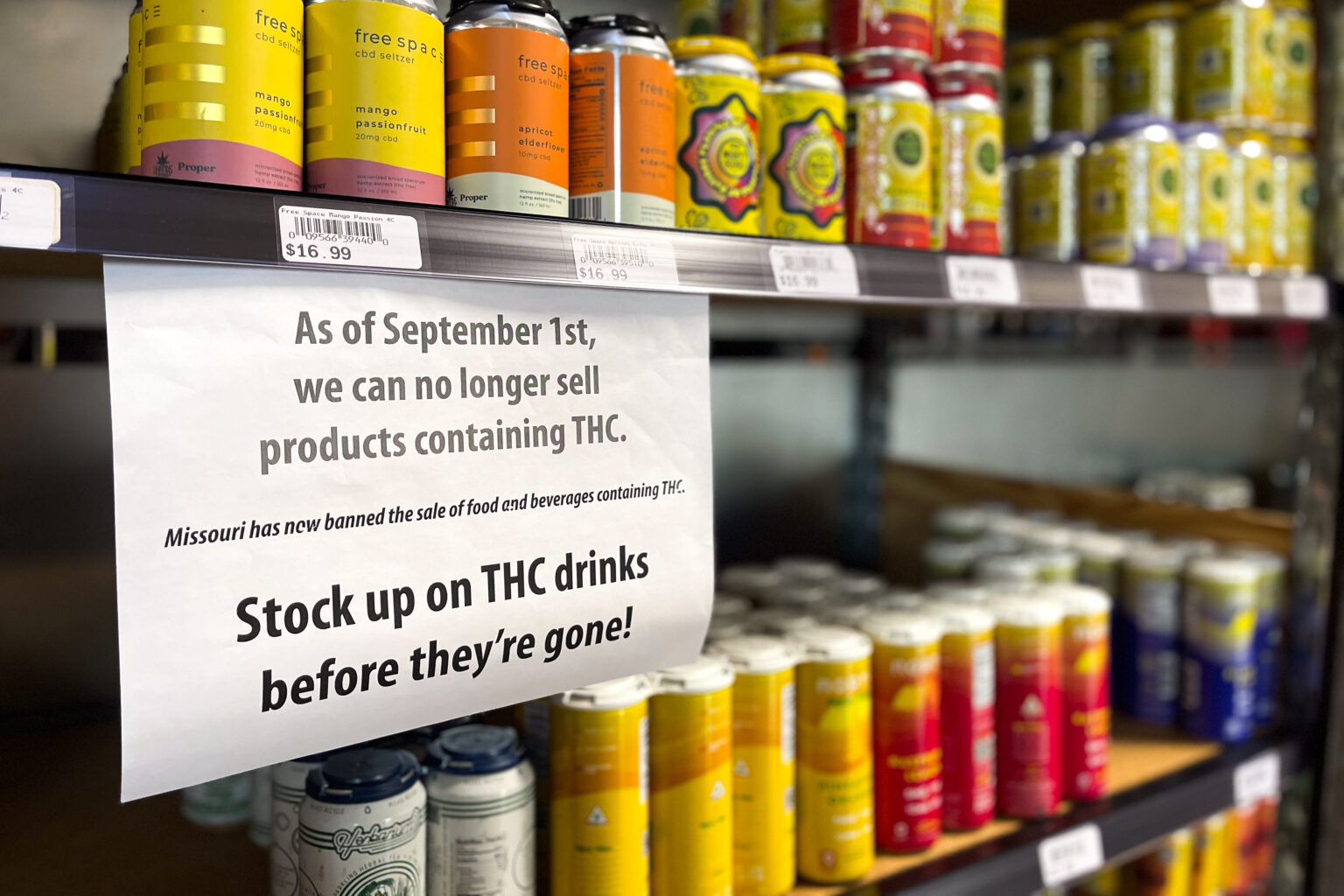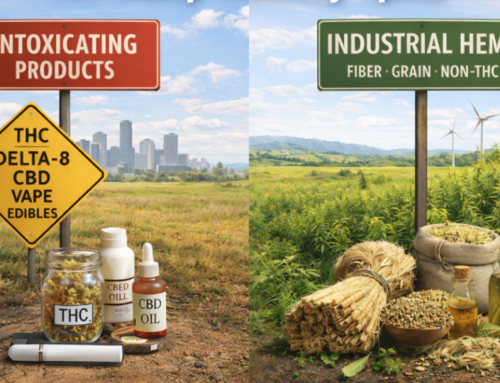ANALYSIS : The Looming End of Unregulated Hemp-Derived Intoxicants
LOS ANGELES- July 21, 2025 The hemp-derived THC loophole may be living on borrowed time.
Over the past year, the unregulated market for intoxicating hemp-derived cannabinoids—most notably delta-8 and delta-10 THC—has come under increasing legal and legislative scrutiny. What began as a creative interpretation of the 2018 Farm Bill has morphed into a nationwide regulatory battle pitting state public health officials and lawmakers against a fragmented industry thriving on ambiguity.
Now, with Congress poised to revise the Farm Bill and a growing chorus of federal court rulings upholding state bans and restrictions, the days of selling psychoactive hemp products under the “hemp” banner could be drawing to a close.
The Loophole That Opened the Floodgates
The 2018 Farm Bill sought to legalize industrial hemp and its derivatives by excluding cannabis with less than 0.3% delta-9 THC from the Controlled Substances Act. This opened the door for the production of non-intoxicating CBD products, but also—unintentionally—for intoxicating cannabinoids derived from hemp.
Manufacturers began synthesizing delta-8, delta-10, HHC, and other minor cannabinoids through chemical processes, allowing them to market gummies, vapes, and beverages that deliver a psychoactive effect similar to cannabis, but technically remain within the 0.3% delta-9 THC limit. Unlike state-regulated cannabis markets, these products were sold with no age restrictions, potency caps, or testing requirements.
States Push Back—and Courts Back Them Up
Faced with federal inaction, states have stepped in. California, Virginia, Arkansas, and others have implemented stringent restrictions or outright bans on intoxicating hemp-derived products. These rules go beyond consumer protection—they seek to draw clear lines between hemp and cannabis commerce, particularly as youth access and public health concerns mount.
In California, emergency regulations enacted by the Department of Public Health in 2024 banned all hemp-derived food, beverage, and dietary products containing any detectable THC or other intoxicants. The state’s regulations covered more than 30 cannabinoid compounds and limited servings per package, setting a regulatory benchmark for other states.
Industry groups sued, arguing that California was overstepping its authority under the Farm Bill. But the courts disagreed. A Los Angeles Superior Court ruled the Farm Bill doesn’t prevent states from restricting or banning the sale of these products in their jurisdictions. The case was dismissed, and the rules remain in place.
Virginia and Arkansas followed suit with their own laws limiting total THC content in hemp products. Federal courts in both states upheld those laws, reaffirming that the Farm Bill explicitly allows states to implement more stringent regulations—and that such laws do not violate the Dormant Commerce Clause as long as they apply equally to in-state and out-of-state businesses.
Perhaps most striking was the decision from the 8th Circuit Court of Appeals, which upheld Arkansas’ Act 629—a law that schedules delta-8, delta-10, and similar compounds as controlled substances. The ruling confirmed that states can criminalize these products without running afoul of federal protections, so long as they do not impede interstate transport of federally legal hemp.
Federal Efforts to Rein in the Market
While the states lead the charge, pressure is mounting on Congress to close the Farm Bill loophole once and for all.
In June 2025, Rep. Andy Harris (R-MD) advanced a provision within a House Appropriations bill that would redefine “hemp” to include total THC—counting all isomers and THCA—rather than just delta-9. This measure would render most hemp-derived intoxicants illegal at the federal level and effectively eliminate the gray-market THC industry. The proposal also bans any product with a quantifiable amount of psychoactive cannabinoids or synthetics, with narrow exceptions for fiber, grain, and seed use.
Still, passage is far from certain. Similar amendments have stalled before, and opposition from the hemp and wellness industries remains vocal. However, with the FDA continuing to insist it lacks the authority to regulate these compounds, many in Congress see Farm Bill reform as the only viable route.

Image: The sale of products and drinks with addition of hemp (cannabis)
The Texas Twist
In a rare turn of events, Texas Governor Greg Abbott vetoed a sweeping hemp product ban passed by the state legislature in June 2025. Citing the then-pending Arkansas court case, Abbott argued the bill would trigger years of litigation. Ironically, just one day after his veto, the 8th Circuit upheld the Arkansas law—proving his caution both premature and ill-timed.
Still, Abbott’s pivot may offer a path forward: he called for a special session to craft a regulatory framework for hemp products modeled on alcohol laws—complete with licensing, age restrictions, and potency limits. It’s a signal that even in traditionally hemp-friendly states, the unregulated era is ending.
What This Means for the Industry
This patchwork of litigation and legislation signals a seismic shift: the era of intoxicating hemp-derived products thriving in a legal gray zone is nearing its end.
The message from courts and lawmakers is clear:
-
States are within their rights to ban or heavily regulate intoxicating hemp products.
-
The Farm Bill does not guarantee legality of psychoactive cannabinoids across state lines.
-
Federal reform is likely coming, and when it does, it will likely sweep many products off the shelves.
For hemp operators, the window to adapt is closing. Businesses still relying on delta-8 or other psychoactive compounds must now consider:
-
Transitioning to non-intoxicating SKUs
-
Aligning with upcoming regulatory standards
-
Exploring pathways into fully licensed cannabis markets
Inaction could mean being caught on the wrong side of a rapidly changing legal environment.
Looking Ahead
As Congress inches toward a new Farm Bill and states move ahead with enforcement, hemp’s identity crisis is coming to a head. Is it a fiber and wellness commodity—or a backdoor for intoxicants?
If current trends continue, the industry may be forced to choose. And for many businesses, survival will depend on how quickly they can pivot to a new, more compliant future.
Stay tuned to HCN Media for continued coverage on federal and state cannabis and hemp regulations. Subscribe to our newsletter for the latest analysis, legal insight, and emerging market trends.
Highly Capitalized Network. We do not sell coverage. We do sell trusted insight.


































